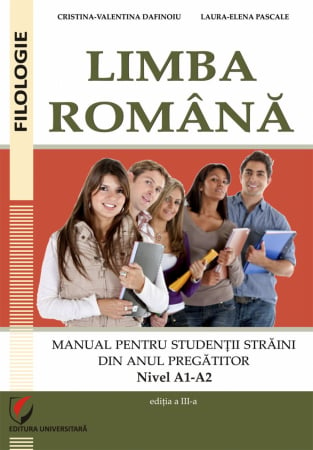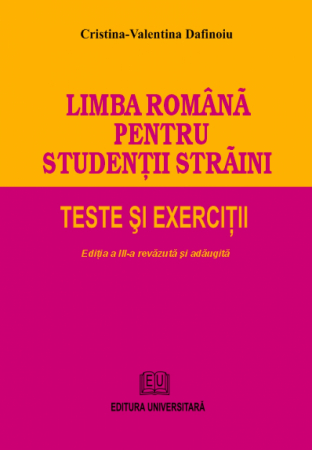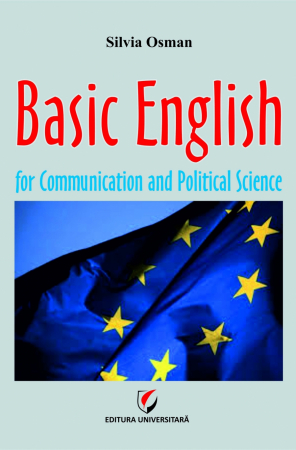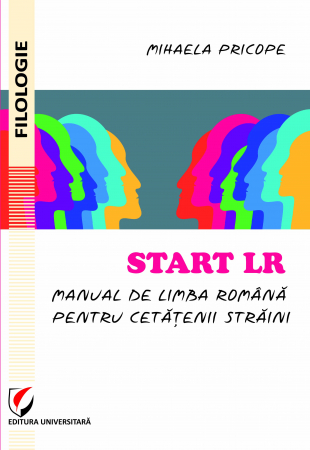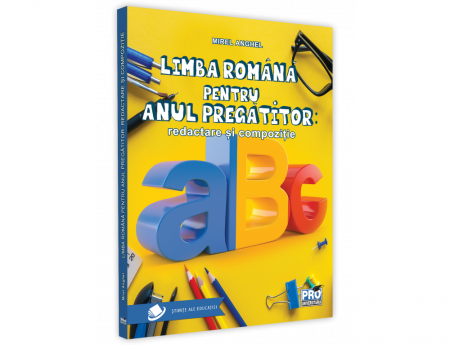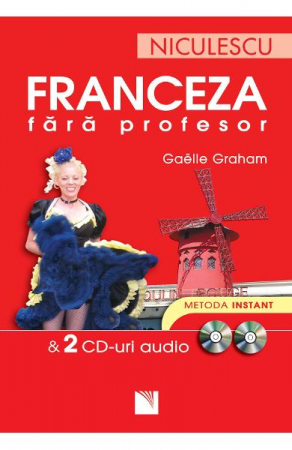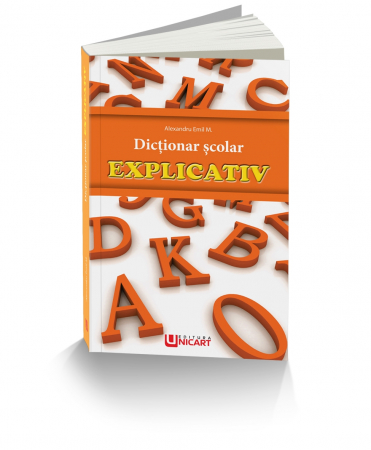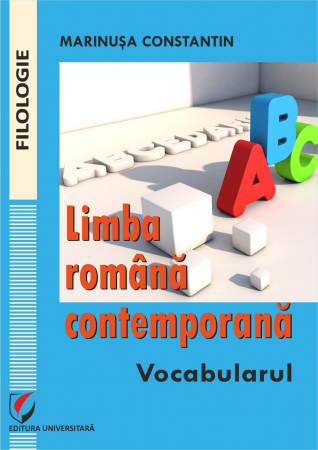ISBN: 978-606-28-0550-0
DOI: 10.5682/9786062805500
Publisher year: 2017
Edition: I
Pages: 234
Publisher: Editura Universitara
Author: Alexandra Dragomirescu
- Description
- Download (1)
- Authors
- Content
- More details
- Where to find it
- Reviews (0)
The work is one par excellence of literary history. The author carefully and thoroughly researches one of the lesser known sectors of Al's activity. Macedonski, respectively, his journalism and correspondence. A large part of the articles published by the writer were commented and edited by Tudor Vianu, others were studied by Adrian Marino. However, many remain unknown and it is the merit of the author of this paper to signal their presence in a comprehensive corpus, organized chronologically, with the mention of the publication in which they appeared.
Overall, I believe that the author has made a comprehensive and documented picture of Al's journalistic activity. Macedonski, signaling motivations, consequences, connections with the work, its echoes in the epoch and in posterity. The correspondence was carefully researched, extracting data that interest the most faithful characterization of the man and his work. It is a necessary work, which completes the research of a field of Al's work. Macedonski, remained to some extent less approached, in its entirety, by literary history.
Prof. Dr. Alec Hanta
-
Publicistica si corespondenta lui Alexandru Macedonski
Download
Introduction / 7-9
Chapter I / 11-29
The Macedonski case
Chapter II / 30-49
The specifics of the research
Chapter III / 50-79
Al. Macedonski and his publications
Chapter IV / 80-109
Intermezzo period in correspondence
Chapter V / 110-152
Macedonski's news
Chapter VI / 153-227
Establishing the corpus
Instead of conclusion / 228-229
Selective bibliography / 230-33
The work is one par excellence of literary history. The author carefully and thoroughly researches one of the lesser known sectors of Al's activity. Macedonski, respectively, his journalism and correspondence. Most of the articles published by the writer were commented and edited by Tudor Vianu, others were studied by Adrian Marino. However, many remain unknown and it is the merit of the author of this paper to signal their presence in a comprehensive corpus, organized chronologically, with the mention of the publication in which they appeared.
Victim of the passage of time and circumstances, correspondence sent and received by Al. Macedonski is only partially possible to gather, many "documents" being lost or, at best, lost. The candidate's comment and the "corpus" prepared are based on what is in the funds of BAR, MLR, G. Calinescu Institute, BCU Bucharest, BCU Cluj, Th. Aman from Craiova, on the "open" letters published by the author, which are in fact also articles of a special form. It also refers to some articles and studies left in manuscript and kept at MLR as well as to the articles published in the brochure or to prefects prepared by Macedonski in volumes of some of his collaborators (Th. M. Stoenescu, Traian Demetrescu, C Cantilli, Caton Theodorian).
Al's collaborations could not be included. Macedonski to the foreign press, the respective publications missing from the collections of BAR, BCU Cluj and Bucharest or from the Library of the G. Calinescu Institute. These publications were inaccessible to Adrian Marino, at the time of writing his monograph. Instead, a large number of letters sent and received by Al were recorded and commented on. Macedonski in French, many of them offering interesting details about the biography of man and the work. [...]
The paper establishes, as we have shown, a relatively complete corpus of articles and letters, meant to provide an overview of the field, to identify themes and problems, often present in the literary work of the writer. Details on the profile of the various publications in which Al. Macedonski and opinions are commented that lead to a better knowledge of the writer's personality and of the place he occupies in the literary movement of the time. [...] The political attitudes and the ideological orientation of the writer are signaled, their oscillating character, the hesitations between liberalism and conservatism, even some socializing utopias. It is observed that, in general, Al. Macedonski is not one of ideological doctrine, but one of opinion, visibly influenced by the everyday event. It tries a thematic grouping of articles, retaining the aspiration for freedom and equality - the last understood as an active element only between individuals of the same social and intellectual condition, the contestation in the Enlightenment spirit of several institutions that seem obsolete, commenting on foreign policy the country and the expression of questionable attitudes regarding the War of Independence and the First World War. The publicist is interested in issues of agriculture, industry and trade, he expresses his opinion about the situation of Jews and Romanians in Transylvania.
Much of the journalism expresses Al's hostility. Macedonski to the Academy, Junimea, "Literary Conversations", V. Alecsandri. T. Maiorescu, sometimes in 1912, rejecting even Symbolism, which he considers macabre, decadent, lacking motivation and opting for Romanticism and "social poetry", represented by the creation of 1848. Romanticism "theorized" by Al. Macedonski is of the Hugolian type, classicism is identified with the resistance to the corrosion of time, although in the last analysis his sympathies openly converge towards Symbolism.
Al. Macedonski also addresses the problems of literary criticism, he was concerned, like Heliade, about its role in promoting the "craft", he pleaded for objectivity in the appreciation of values, but he aroused, as is well known, many and justified grievances due to excessive subjectivism with who judges the literature of some of his contemporaries.
Overall, I believe that the author has made a comprehensive and documented picture of Al's journalistic activity. Macedonski, signaling motivations, consequences, connections with the work, its echoes in the epoch and in posterity. The correspondence was carefully researched, extracting data that interest the most accurate characterization of man and his work. It is a necessary work, which completes the research of a field of Al's work. Macedonski, remained to some extent less approached, in its entirety, by literary history.
Prof. Dr. Al. Hanta
[The above lines were written in 2006, as part of my doctoral dissertation. In that paper I aimed to achieve several objectives: to establish a corpus as complete as possible of articles and letters, necessary for a better knowledge of Al's activity. Macedonski (Chapters V, VI), the research of journalism and its correspondence (Chapters III, IV), taking into account the particularities of the respective fields (Chapter II) and the consulted bibliographic sources (Chapter I).
*
Since then, many years have passed, Professor Alec Hanta, the coordinator of my work, is no longer with us. It's as if yesterday he insists on going to Cluj and talking personally with Adrian Marino ... "He knows your subject best", he keeps repeating to me. I followed his advice, but to my surprise, the literary critic was not willing to talk to me about Macedonski, he preferred to talk about literary ideas, to exchange impressions in other languages (English, French and German). He confessed to me that he wrote the monograph in an ugly period of his existence, I understood him and I did not insist. "The Life of Alexander Macedonski" reminds me only of unpleasant and humiliating situations, he would later reveal in his autobiography, The Life of a Single Man. From the experience of those years, Adrian Marino was left with only the regret that he could not save several manuscripts ... In search of them, I went to Craiova, I knocked in vain at the gate of Tradem's house. Desert! Finally, we came face to face with the Master's throne, a museum object. He was no longer there to offer me a "gem", I had arrived too late ...]
Customer Support Monday - Friday, between 8.00 - 16.00
0745 200 718 0745 200 357 comenzi@editurauniversitara.ro
6359.png)
![Journalism and Correspondence of Alexandru Macedonski [1] Journalism and Correspondence of Alexandru Macedonski [1]](https://gomagcdn.ro/domains/editurauniversitara.ro/files/product/large/publicistica-si-corespondenta-lui-alexandru-macedonski-461-654014.jpg)
